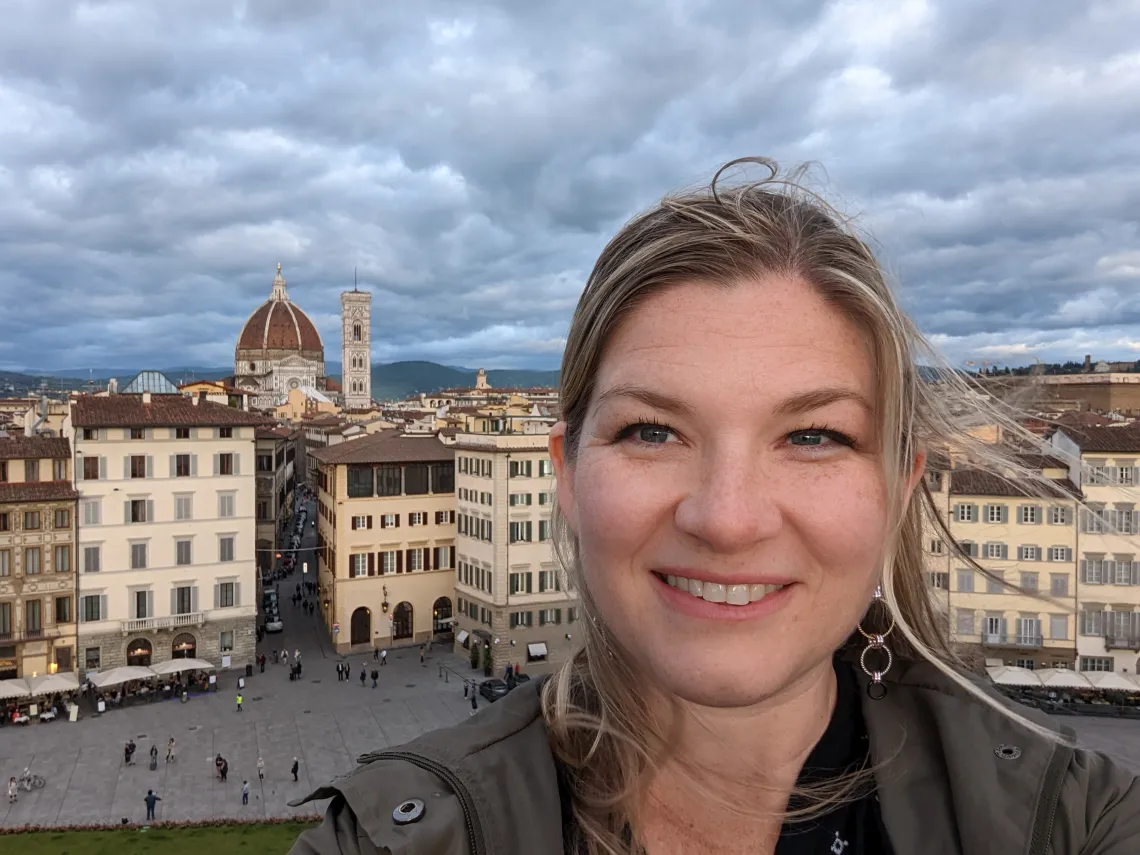What's next, Dr. Coalson?

Visiting Florence, Italy in May 2023
The last time we talked with Dr. Jenna Coalson was in early 2020. Back then, she held an Assistant Professor of Practice position at the University of Notre Dame in Indiana. That position provided her with the opportunity to teach while also participating in research collaborations and project supervision.
Later in 2020, the COVID-19 pandemic prompted Coalson to reassess her career goals. She realized her passion extended beyond academia and decided to seek a more hands-on role in public health interventions.
“Especially because I am an infectious disease epidemiologist, I really took a step back, thinking, ‘Oh my gosh, the crisis of a lifetime hits, and it’s literally the thing that I’m supposed to be the most helpful with,’” Coalson said. “I’m trained to do this thing and what impact am I actually having on people’s lives?”
Much of Coalson’s research during graduate school and thereafter was focused on understanding how people’s interactions with the environment contribute to malaria disease risk. While she continues to see great value in the research process, she found herself looking for a way to apply research findings.
“I found that I wanted to move into more of the implementation side of things, so I found a [related] job open at the Carter Center [in Atlanta, Georgia]… I work mostly on river blindness and Lymphatic Filariasis with a little bit of schistosomiasis,” Coalson said. Since 2021, Coalson has worked as an epidemiologist in the area of vector-borne diseases, but in a very different type of role.
“There’s so much I’ve had to learn … [and I’ve realized] how much of the world of implementation was just totally foreign to me,” Coalson admitted.
The shift has been challenging but also satisfying and humbling. Much of Coalson’s new job involves activities completely unrelated to her PhD and postdoc training, such as learning how to work with Ministries of Health from various countries in Africa, the World Health Organization (WHO), and other partners. Coalson now approaches the problem of vector-borne diseases from a public health management perspective, rather than through the experiment and discovery of lab-based research. These days her focus is on being strategic with population survey design, identifying prevalence of diseases, and managing data from different organizations.
“For a long time, I was feeling like once I left the pre-tenure track, I would never be able to come back, but I don't think that's necessarily true, especially in public health. There's a lot to be learned from this application side of things that I think if I did ever change my mind, I could still potentially go back to the professorship focused career path,” Coalson said.
With her stimulating and stable job and newfound work-life boundaries, Coalson is thoroughly enjoying her current career path. She also looks forward to once again incorporating teaching into her work life as new opportunities arise.
